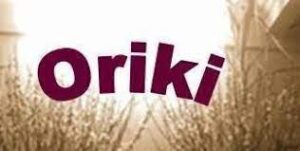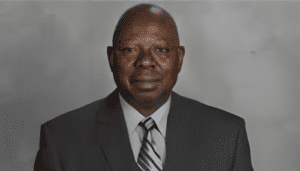Towards inclusive 2023 general election in Nigeria
One of the cardinal duties of the media, aside being the watchdog of the society, is to counter disinformation and guide the citizens to make informed decision in times of elections.
This, nonetheless, does not preclude its duty of upholding the right to freedom of expression of every electorate.
The media, among other actors have a major role to play in ensuring that electorate decide their fate through active participation in a process that would bring a desired change.
Unarguably, inclusion of women, youth, and Persons with Disabilities (PWDs) at all levels of these processes is very important.
This is with special to decision making, policy formulation and execution. However, this group of persons has continued to be marginalised and hardly given the needed opportunities to make their voices heard by the media.
A research by the Institute for Media and Society (IMS) between November 2022 and January 2023, on inclusive election coverage on radio and television towards 2023showed that broadcast media coverage on inclusive electoral process was poor.
For instance in terms of thematic focus on women, youths and PWDs, and the featuring persons from these groups as guests or sources on political programmes, revealed a decline when compared with a similar study carried out in 2019.
The research sampled a total of 17 radio stations and 15 television stations across the six geopolitical zones of the country.
To change this narrative and on improve the mainstreaming women, youths and PWDs in the electoral process through improve inclusive media coverage the IMS, recently organised a 2 day workshop for journalists across the nation in Abuja.
The workshop was supported by the European Union Support To Democratic Governance in Nigeria, (EU-SDGN) Programme II and had as its theme “Sharing on Good Practices and Trends on Inclusive Coverage of the Electoral Process.”
According to Dr Akin Akingbulu, who is the Executive Director, IMS, the training was aimed at refocusing the media to give quality attention to inclusive participation in the 2023 electoral process.
“A democracy without inclusion is a democracy with deficit. Therefore, the way inclusion is being handled in Nigeria is nothing to write home about.
“We want to change the landscape and we want the media to give more quality attention to the issue of inclusion.
“From the baseline report, the media has not been giving visibility; sufficient access to women, youths and PWDs and this is a duty for the media.
“So we want to change all that and to do that we need to build the capacity of the journalists across all the platforms.
“This is to enable them engage the public; citizens, institutions, with appropriate education such that participation of these groups will improve in the electoral process and broader democratic governance in Nigeria,” he said.
Sharing a similar sentiment, the Institute’s Programme Manager, Timothy Bamidele said the EU SDGN programme II, would foster a friendly and all-participatory democratic process in the country.
Bamidele said EU SDGN II for media support was meant to address the challenges media practitioners face in the coverage of inclusiveness during the electoral process.
Also speaking, Prof. Abigail Ogwezzy-Ndisika, lecturer, Department of Mass Communication, University of Lagos, canvassed deepened professionalism in the coverage of the under-served.
Ogwezzy-Ndisik, said though the coverage had not reached expected levels, with interventions such as EU SDGN II there is hope that things could improve in the years ahead.
According to Dr Ganiyat Tijani-Adenle of Lagos State University, it is important that all participants at the workshop practice what they learnt.
“If you are not constantly reminding yourself about your responsibility, you might slide out. The take home for me is the awareness creation and the determination to implement all the knowledge gained and shared,” Tijani-Adenle said.
“I have learnt many new ways to report and present programme on inclusiveness about women, PWDs and youths.
“I am currently doing a programme on women and youth inclusiveness in politic. So coming here has given me a different perspective and equipped me with new ways of reporting issues surrounding inclusiveness.
“In terms of carrying out my reportage and in the presentation of my programmes on inclusive electoral process and good governance, I am better equipped.
“So it will go a long way in shaping me and I will also educate other media practitioners in my station about what I have learnt,” said Mr Ango Bally, of Invicta FM, Kaduna,
For Hannah Akanta from Radio Nigeria, Yola, the training was very engaging.
“It has been an engaging moment, it has been enlightening and it has been an eye opener for me to understand more about inclusiveness coverage.
“To be frank, I have not really had the opportunity to attend such trainings and presentations on such topic. The two day training has added to my knowledge about inclusiveness.
“Moving forward as a reporter, I will deliberately implement all that I have learnt in other for us to have an inclusive electoral coverage and reportage.
“I will be intentional about coming up with programmes that address the issue of women, youths and persons with disabilities,” Akanta said.
To Blessing Oladunjoye, a journalist with BONews, Lagos, journalists must be deliberate about covering persons with disabilities, women and youths as the country goes to the polls on Feb, 25 and March 11.
“Journalists should strategise and share tasks among themselves while covering elctions, while media organisations need to allocate specific reporters to cover the marginalised groups as they make preparation to cover the voting process.
“Media houses should also collaborate with associations working with PWDs to get more insightful reports for their stories,” Oladunjoye said.
Chigozie Chukwuleta of Unizik FM, Awka, also charged other participants to make effective use of the training.
As Nigeria gears up towards another general election, it is important that all stakeholders contribute their quota to ensure that nobody is left behind in the process.




